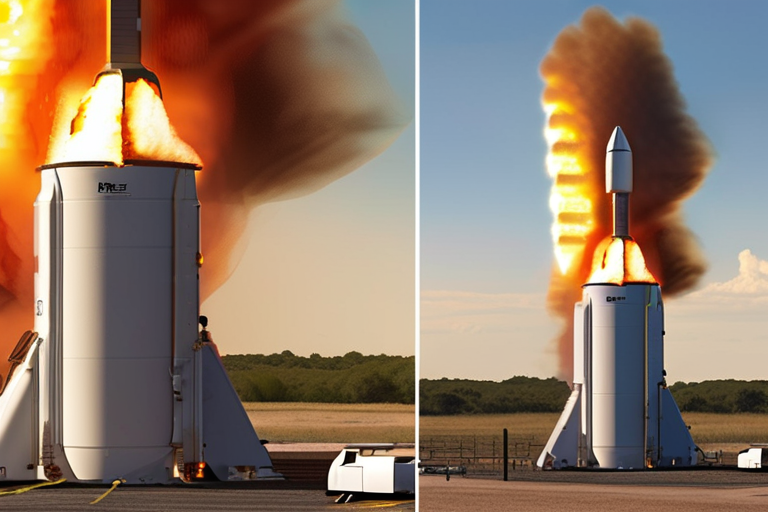Rocket Report: Alpha Explodes on Test Stand; Europe Wants a Mini Starship
A catastrophic explosion occurred Monday at Firefly Aerospace's vertical integration facility in Vandenberg Space Force Base, California, destroying the booster stage of its next-generation Alpha rocket. The incident has raised concerns about the safety and reliability of private space companies' launch vehicles.
According to eyewitnesses, the explosion happened around 10:30 a.m. local time, sending flames shooting into the air and causing significant damage to the facility's infrastructure. Firefly Aerospace officials confirmed that no one was injured in the blast, but the company's Alpha rocket program has suffered a major setback.
"We are deeply saddened by this incident and are working closely with our teams to determine the cause of the explosion," said Tom Markusic, CEO of Firefly Aerospace. "Our top priority is ensuring the safety of our employees, customers, and the public."
The Alpha rocket was being prepared for its maiden flight, which was scheduled to take place in the coming months. The incident has sparked concerns about the reliability of private space companies' launch vehicles and their ability to meet the demands of the growing commercial space industry.
Firefly Aerospace's Alpha rocket is designed to be a cost-effective and efficient launch vehicle capable of carrying small payloads into low Earth orbit. However, Monday's explosion raises questions about the company's ability to deliver on its promises.
The incident also highlights the risks associated with private space companies' rapid development and testing schedules. "While we appreciate the enthusiasm for innovation in the space industry, safety must always be our top priority," said a spokesperson for the Federal Aviation Administration (FAA).
In related news, European Space Agency officials have expressed interest in developing a mini version of SpaceX's Starship, which could potentially be used for lunar missions and other deep space exploration efforts. The agency has been working closely with SpaceX to develop the technology needed for a human mission to Mars.
The explosion at Firefly Aerospace's facility is not an isolated incident. In recent months, several private space companies have experienced setbacks, including a malfunctioning engine on a Rocket Lab Electron rocket and a failed launch attempt by Virgin Orbit.
As the commercial space industry continues to grow and evolve, concerns about safety and reliability will only continue to rise. The incident at Firefly Aerospace's facility serves as a reminder of the risks associated with private space companies' rapid development and testing schedules.
Background:
Firefly Aerospace was founded in 2017 by Tom Markusic and Max Polyakov, two experienced aerospace engineers who aimed to create a cost-effective launch vehicle capable of carrying small payloads into low Earth orbit. The company has since raised significant funding from investors and has established partnerships with several major space companies.
The Alpha rocket is designed to be a reusable launch vehicle that can carry up to 2,500 kilograms (5,500 pounds) of payload into low Earth orbit. The rocket's first stage is powered by a single BE-4 engine, while the second stage uses a smaller BE-3 engine.
Additional Perspectives:
Industry experts have expressed concerns about the safety and reliability of private space companies' launch vehicles. "The incident at Firefly Aerospace's facility highlights the risks associated with rapid development and testing schedules," said one expert. "Private space companies must prioritize safety above all else."
Current Status and Next Developments:
Firefly Aerospace officials have confirmed that they are working closely with their teams to determine the cause of the explosion and to ensure that the incident does not impact future launch schedules.
The European Space Agency's interest in developing a mini version of SpaceX's Starship is seen as a significant development in the space industry. The agency has been working closely with SpaceX to develop the technology needed for a human mission to Mars.
As the commercial space industry continues to grow and evolve, concerns about safety and reliability will only continue to rise. The incident at Firefly Aerospace's facility serves as a reminder of the risks associated with private space companies' rapid development and testing schedules.
*Reporting by Arstechnica.*



 Hoppi
Hoppi

 Hoppi
Hoppi

 Hoppi
Hoppi

 Hoppi
Hoppi

 Hoppi
Hoppi

 Hoppi
Hoppi











